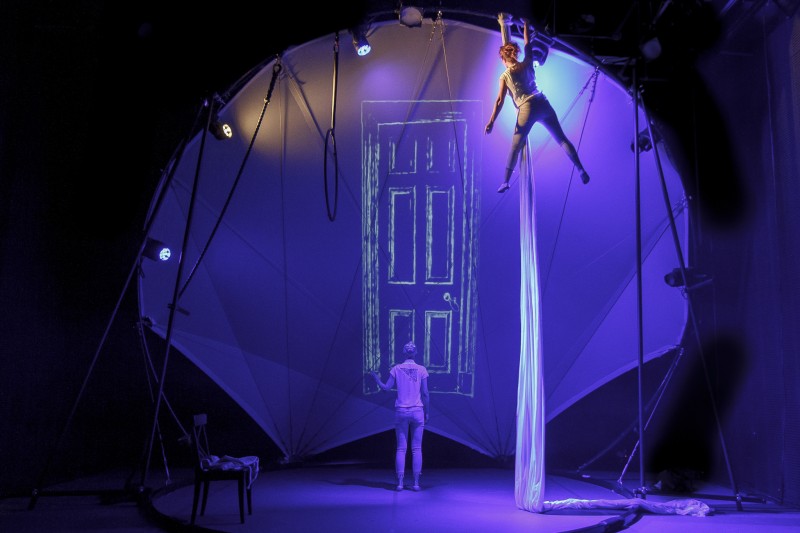 Churchill referred to it as something other, something outside of himself that followed him, haunted him and, on occasion, consumed him: the black dog. Stephen Fry has publically implored us to consider that there is nothing other about depression, that it is simply, incurably, a periodic aspect of personality that is simply there. There are entire movements in literature, theatre, and visual art that seemingly exist to represent the anxieties and exaltations of depression’s torment, often with the condition projected as the only legitimate response to a world grown unacceptable to the mind. There are others who simply cannot lift a hand or speak a word when struck down.
Churchill referred to it as something other, something outside of himself that followed him, haunted him and, on occasion, consumed him: the black dog. Stephen Fry has publically implored us to consider that there is nothing other about depression, that it is simply, incurably, a periodic aspect of personality that is simply there. There are entire movements in literature, theatre, and visual art that seemingly exist to represent the anxieties and exaltations of depression’s torment, often with the condition projected as the only legitimate response to a world grown unacceptable to the mind. There are others who simply cannot lift a hand or speak a word when struck down.
Depression is, like any aspect of mental health and illness, necessarily personal and individual. This can be problematic for forensic and societal frameworks, driven as they are by their need for broad representation, or generalisation. It is too easy to frame a response that patronises or, worse, alienates individuals impacted directly by the issue being addressed.
In this sense artistic expression is as much at risk as medical or cultural policy makers, with the same consequence that in attempting to be sensitive to as broad a constituency as possible, the singularity of intent is lost in the well-intentioned sensitivity.
In Her Shadows, performed here within the Scottish Mental Health Arts & Film Festival, in Edinburgh’s Traverse Theatre, announces itself as an examination of the complexities of depression and a challenge to the stigmas with which it is surrounded.
The piece invites us into the mind of Amy, a young woman returning to Scotland who is thrown into the torment and chaos of depression. Debbie Robbins and Rachael Macintyre, the two aerialists heading up Blank Canvas and Jabuti respectively, examine the territory through silk, rope, and ring work, as well as dance and movement.
Under previous Total Theatre Award Winner Cora Bissett’s direction the pair offer snapshots from a fractured narrative that highlight the internal conflicts, the struggle, and the rare moments of harmony that offer Amy a glimpse of respite. It is in these latter moments where the performers most impress. Working within the limited airspace of Traverse 1, and further constrained by the aerial hoop they share, the pair execute some beautifully touching shapes and movements: feet interlocking, heads flung back and torsos spinning, fingertips painfully short of reaching each other. Whilst there still seemed to be room for tightening up the skills there was enough here to realise the potential of aerial theatre as a mode well and lyrically suited to representing depression: the removal of solid ground, the restless spinning, the struggle to fool gravity and weightlessness into some kind of balanced repose, the beautiful forms that can suddenly emerge from knotted silks and tangled limbs. There is, at heart, a struggle to produce something of elegance from unlikely materials, and this, perhaps, speaks to the body of art that continues to arise from depression.
Robbie Thomson, Cryptic associate, and soon to be seen giving his penchant for kinetic installations and robotics full flight in Glasgow’s Sonica festival, provided a flexible and sympathetic production design comprising appropriately tensioned wires, supporting a stretched membrane onto which film loops, animations and texts are projected. One visual event deserving of singling out is an affecting, brutal sequence of texts illustrating the steep and savage void created by brief simple statements delivered via a medium that celebrates immediacy, whilst simultaneously supporting a means to become detached from all empathy.
Despite being clearly a labour of love for the two performers, there have been many hands brushing against this work in its development, including Grid Iron’s Ben Harrison and the aerialists, Paper Doll Militia. There have been lots of ideas thrown into the pot and not all of them appear to be resolved yet. It is still a sketched pot of ideas, still bubbling, still trying to find its unified flavour. A chair is tried out briefly, where depression snakes around the chair legs to stealthily ensnare her quarry. A shopping trolley makes a similarly brief, almost inexplicable appearance and is then discarded.
With much of the unity of the performance somewhat lost in the format of episodic fragments it came to the recorded recital of Jenny Lindsay’s poem Today to provide the genuinely raw core of the show. In a painfully concise descent the quality of passing days is measured from 10 to 1. We, the listeners, the witnesses, are helpless and can offer nothing as the quality of life thins out, the sense of cohesion disintegrates, and the eruptions of anxiety into an equally unstable manic high break apart the foundations of identity. One leaves the show with little new insight, and I was not aware of any particular stigma being challenged, but there was a renewed sensitivity to this universal condition that touches all, engulfs numerous, and, sadly ruins many.
